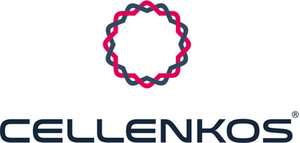- First cohort of REGALS (T Regulatory Cells for ALS) has been completed.
- Ongoing Phase 1/1b study evaluating safety and efficacy of CK0803 (Neurotrophic T regulatory cells).
HOUSTON, Jan. 19, 2024 /PRNewswire/ -- Michael E. DeBakey VA Medical Center announces opening of a new clinical trial using CK0803- off-the-shelf, allogeneic T regulatory cells that have been modified to target neuroinflammation to treat the fatal neurodegenerative disease – Amyotrophic Lateral Sclerosis (ALS).
"We are very excited to open this first-in-class, best-in-class, cell therapy aimed to resolve neuroinflammation which fuels the ALS disease process. We believe that this novel approach of calming the inflamed microglia in the brain and spinal cord holds the promise for halting this relentlessly progressing disease", said Dr. James Orengo, principal investigator at the Michael E. DeBakey VA Medical Center and Assistant Professor of Neurology at Baylor College of Medicine. "Specifically, we are thrilled that our veterans will get the opportunity to receive such a cutting edge therapeutic that could be life altering. The incidence of ALS is elevated in Veterans and novel therapies are desperately needed. We are proud to be the first and only VA hospital in the nation to be part of this multi-center study". Please click here for the VA announcement.
ALS is a rare, rapidly progressing and fatal neurodegenerative disorder that affects approximately 55,000 people globally. People with ALS experience muscle weakness, loss of movement, and difficulty breathing and swallowing, resulting in a severely declining quality of life and eventually death. The incidence of ALS has been rising in the veteran population and is a large unmet need. More than 16% of patients with ALS are veterans1. There are many health issues that veterans are at increased risk of, including ALS2. Veterans are twice as likely to be diagnosed with ALS than people who haven't served in the military3.
"There is an urgent need for novel treatments for all forms of ALS, a devastating disease that affects far too many patients and their families. We made a conscious decision to make this novel cell therapy available to the veterans and remain committed to provide our continued support to those who have served our country," said Tara Sadeghi, Cellenkos' chief operating officer. "Leveraging our experience in consistently developing and manufacturing, robust, T regulatory cell therapies that are targeted towards disease specific mechanism of action and our intimate connection to the ALS patient community, Cellenkos made the decision to advance CK0803 to the clinic and, ultimately, to the market because we believe we are uniquely positioned to make it available to patients living with ALS."
The first cohort of phase 1/ 1b CK0803 trial has been completed and is currently open for enrollment at Columbia University, New York, NY, led by PI, Dr Neil Shneider, M.D., Ph.D., director of Columbia University's Eleanor and Lou Gehrig ALS Center.
About Amyotrophic Lateral Sclerosis (ALS)
According to the National Institute of Neurological Disorders and Stroke, amyotrophic lateral sclerosis (ALS) is a group of rare neurological diseases that mainly involve the nerve cells (neurons) responsible for controlling voluntary muscle movement. In ALS, both the upper motor neurons and the lower motor neurons degenerate or die and stop sending messages to the muscles. Unable to function, the muscles gradually weaken and waste away (atrophy). Eventually, the brain loses its ability to initiate and control voluntary movements. The disease is progressive, meaning the symptoms get worse over time. The majority of ALS cases (90 percent or more) are considered sporadic. This means the disease seems to occur at random with no clearly associated risk factors and no family history of the disease. In a small (approximately 10%) of cases, ALS is caused by a mutation in a known ALS-associated gene.
Most people with ALS eventually die from respiratory failure, usually within 3 to 5 years from when the symptoms first appear. However, about 10 percent of people with ALS survive for 10 or more years. Currently, there is no cure for ALS and no effective treatment to halt or reverse the progression of the disease.
About CK0803
CK0803 is a novel allogenic cell therapy product consisting of T regulatory cells, with a high cell surface expression of CD11a, that leverage CXCR3/CXCL10 axis. CK0803 is derived from clinical-grade umbilical cord blood units and manufactured using Cellenkos' proprietary CRANE® process. There is no requirement for HLA or ABO matching of CK0803 to the recipient. Multiple doses of CK0803 can be manufactured from a single umbilical cord blood unit, where the final cryopreserved product is readily available for use, at the point of care, which makes it an ideal therapy that can be infused intravenously, in the outpatient setting.
About Cellenkos®, Inc.
Cellenkos is a clinical-stage biotechnology company located in Houston, Texas, USA, dedicated to the development and commercialization of the allogeneic, "off-the-shelf" cell-based products for the treatment of rare inflammatory diseases and autoimmune disorders. Cellenkos' T regulatory cells (Tregs) are derived from umbilical cord blood and as such are naïve, bonafide suppressor cells that do not require HLA or ABO matching and resolve inflammation through multiple direct and indirect mechanisms. Cellenkos' proprietary CRANE® process allows for tailoring of Tregs to become disease specific. Cellenkos' current clinical portfolio includes CK0801 (bone marrow failure); CK0802 (COVID ARDS); CK0803 (ALS) and CK0804 (myelofibrosis). For more information, please visit www.cellenkosinc.com.
1 https://vamboa.org/more-than-sixteen-percent-of-als-patients-are-military-veterans/. |
Contact:
Stacy Minor
[email protected].
SOURCE Cellenkos, Inc.

WANT YOUR COMPANY'S NEWS FEATURED ON PRNEWSWIRE.COM?
Newsrooms &
Influencers
Digital Media
Outlets
Journalists
Opted In




Share this article